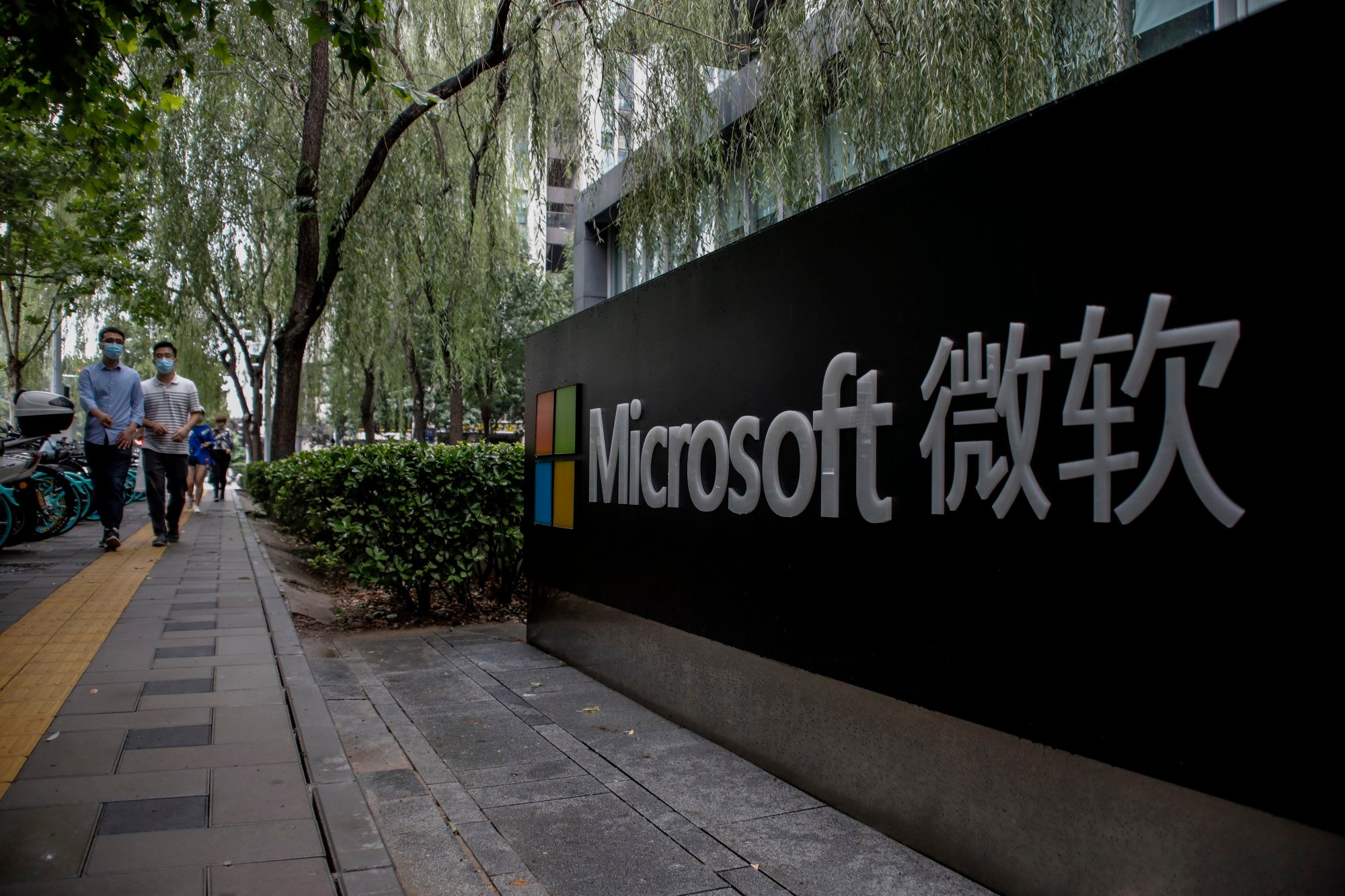American tech giant Microsoft has come under the spotlight amid rising geopolitical tensions between Beijing and Washington, as US lawmakers questioned the company over its ties to the world’s second largest economy.
Brad Smith, Microsoft president since 2015, disclosed that China only accounted for around 1.5 per cent of its global revenue, but said there are reasons for the company to stay even as the size of its mainland-based engineering team has been reduced.
The reasons for Microsoft to continue its China operations were “to protect American information and trade secrets of American companies who are doing business in China” and to “ensure that [it is] always learning from what’s going on in the rest of the world”, Smith said last week during congressional testimony over computer hacks last year that were linked to China.
The hearings, where Smith had to assure lawmakers that US national security was being protected as part of its involvement in China tech development, reflect how growing bilateral tensions are impacting American businesses.
The tensions are “likely to continue for a long time, which will be a tremendously negative backdrop for US tech companies investing in China”, said He Jun, senior researcher at Beijing-based think tank Anbound.
During the testimony, Smith was asked about his promise to “actively participate in the digital transformation of China’s economy”, an indirect quote published by China’s commerce ministry and attributed to Smith during his visit to the country in December. Smith told the hearings that the words were “not [his] statement”.
Smith said there were areas in China deemed by Microsoft as “appropriate and important” to participate in, but that he did not use the words in the quote.
However, the quote and Smith’s visit to China were widely reported by local media as Beijing seeks to lure more foreign investment in the country.
“It’s been increasingly hard for American companies to operate in China given the rising geopolitical tension between the two countries,” said Thomas Liu, founder and CEO of the consultancy Policy Nexus. “But in the long run, China and the US will benefit from cooperating with each other rather than a conflict.”
Even while maintaining its presence on the mainland, Microsoft has been reducing its China-based engineering team. Smith confirmed that the company is offering to relocate 700 to 800 employees from it China operations overseas. The Post reported in May that some local staff, including those from the Azure cloud computing unit, were offered new work locations such as the US, Australia and Ireland.

Separately, Microsoft announced plans last week to invest US$7.2 billion to develop new data centres in Spain, making it a major cloud computing hub in Europe.
Anbound’s He said Microsoft still has advantages in staying in China. “When [Microsoft founder] Bill Gates came to China [last June], the nation’s president [Xi Jinping] met him. Will Microsoft give up this good ‘soft power’ and reputation to dance to the demands of American politicians?”







